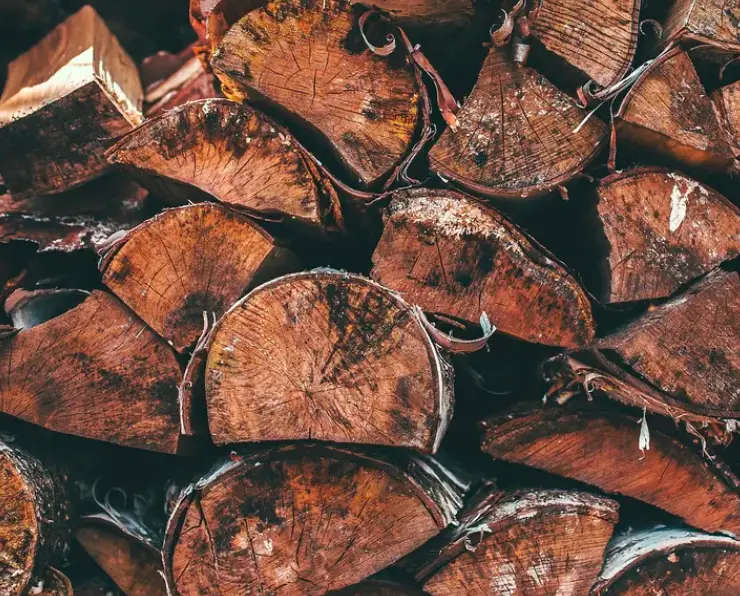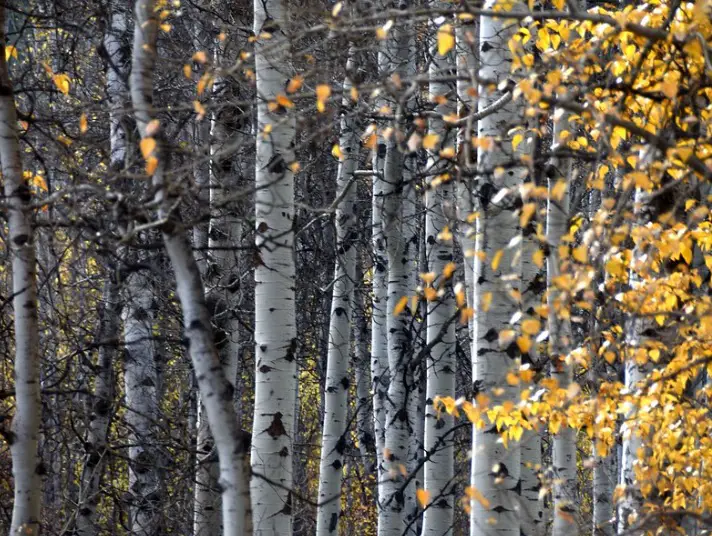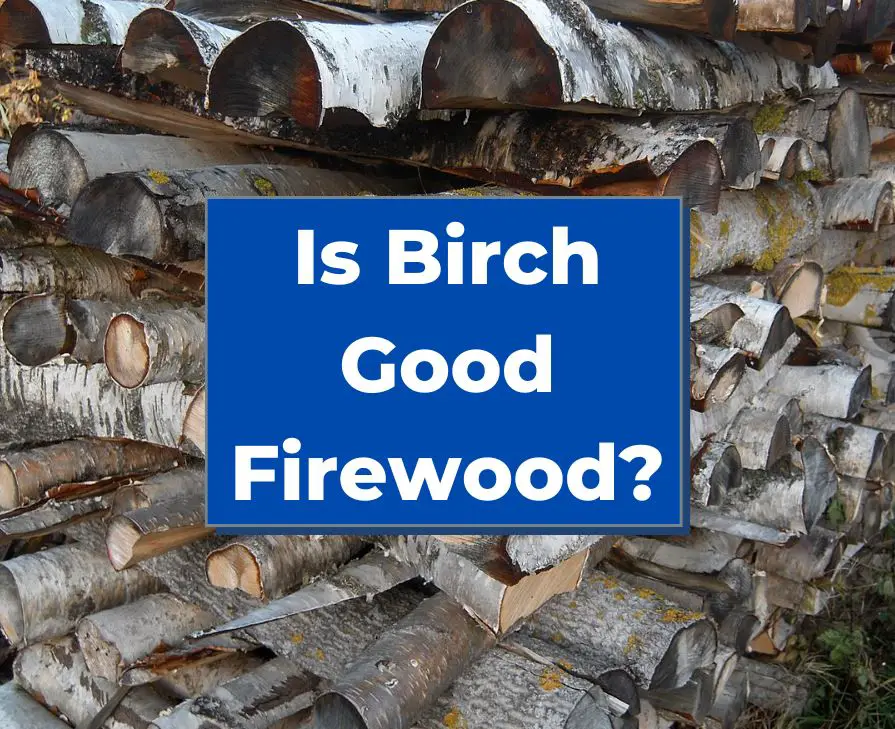Nothing’s better than the crackle and warmth of a fire, whether that’s a fire pit, campfire, or even your fireplace at home. Sometimes you want to keep the fire going but don’t have the ideal wood on hand, so you’ve got to use what’s available, including birch. So, is birch good firewood?
Birch can be safely used as firewood, smells good, doesn’t pop or spark much, and produces a decent amount of heat. Birch bark also makes a great fire starter.
We’ll go further in depth about using birch as firewood along with some pros and cons of using birch in your fire in today’s guide.
Does Birch Make Good Firewood?

If you’re looking to get a fire going and all you’ve got is birch, don’t worry: birch is safe to use and is not on the list of bad woods to burn. Also, birch smells great which is a plus.
Because it burns slowly, it is actually great for keeping the fire going, but there are some drawbacks to consider before choosing birch as the main fuel source for your fire.
Here’s a video from In The Northwoods showing some white birch trees being felled for firewood:
Pros Of Burning Birch
Birch is convenient as a firewood because it burns slower than some other woods, which makes it great for longer fires, or keeping a fire going in the firepit.
Birch also has a few different varieties, and each of them smell great: grey birch is known to smell like incense, while yellow birch can smell like wintergreen when burned.
It is also easy to split, which is a definite plus if you’re the one chopping the wood.
Last but not least, birch bark peels off the wood like paper and makes an awesome firestarter.
Cons Of Birch Firewood
So we covered that birch smells good, doesn’t spark much, and splits easily. What’s not to love? Let’s go through the reasons why birch isn’t the best choice for a fire.
This is a little tough to explain because it’s not really the general drawback of birch, but rather each species has it’s own unique characteristics, so we’ll go through each example below.
Black Birch is the best birch for firewood. It’s dense fibers means it burns longer and hotter than any other birch variety, and it produces a sweet smell.
Yellow Birch is dense like black birch, but it’s harder to split and dries slowly.
White Birch is the most recognizable thanks to it’s white, paper-thin waterproof bark. The fibers are less dense than yellow or black birch, so the wood burns faster and isn’t the best choice for firewood. White birch can also decay rather quickly if exposed to the elements, which isn’t ideal.
Birch Firewood Heat Production

The heat produced by firewood depends on the species, moisture content, and burning conditions of the wood.
Birch is a type of hardwood that has a relatively low resin content and a high density, which is why it burns slower and longer than softwoods do.
Birch produces 17 to 27 million BTUs (British Thermal Units) from one cord (or 128 cubic feet) of seasoned firewood depending on the species:
Black Birch: 26.8 million BTUs per cord
Yellow Birch: 21.8 million BTUs per cord
White Birch: 20.8 million BTUs per cord
Grey Birch: 17 million BTUs per cord
Seasoned firewood means that it has been dried for a minimum of six months to dry it out.
By comparison, hardwoods like maple or oak can make 20 to 30 million BTUs from a single cord of seasoned wood, making them similar for producing heat.
Burning one cord of seasoned birch firewood is equivalent to 258 gallons of propane, over 6,900 kilowatt hours of electricity, 22,710 cubic feet of natural gas, or 170 gallons of heating oil.
The bottom line is that burning birch firewood (especially black birch) is good for heating purposes because it burns slowly and produces more heat than other wood types.
How Long To Season Birch
Birch wood can be seasoned in about 12 months, so stack it quickly after cutting.
You don’t want to burn green (unseasoned) wood as it will produce tons of smoke and is very unpleasant.
Most seasoned firewood has a moisture content of 20 percent or lower. Anything higher than that will be hard to light, make more smoke, and produce higher levels of creosote.
Birch can have up to a 50 percent moisture content when it’s green, so giving it proper time to season before burning it is very important.
Burning Birch Firewood FAQs
Birch is a good wood for burning in a fireplace or wood stove because it burns slowly.
While this is a good thing, you may need some different wood or you can use white birch bark to get your birch logs started.
Also, the slower burning time means smoke will hang out in your chimney a bit longer, so you’ll need to pay attention to creosote buildup and keep your chimney clean.
Birch is an excellent choice for campfires because it burns slow and smells great.
You’ll need to use a fire starter or other wood type to get the birch logs going, so make sure you come prepared.
Yes, birch is fine to burn in a firepit. Use a cover with your firepit to protect yourself from sparks and pops, and use medium-sized birch logs so you can get longer burning time.

